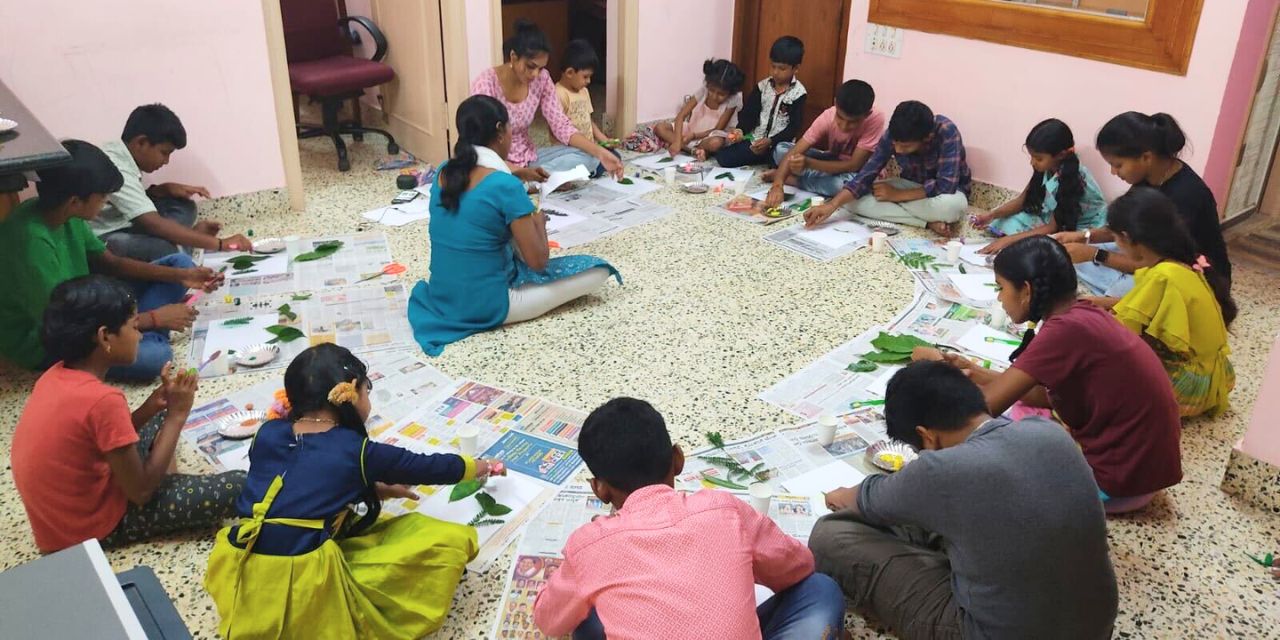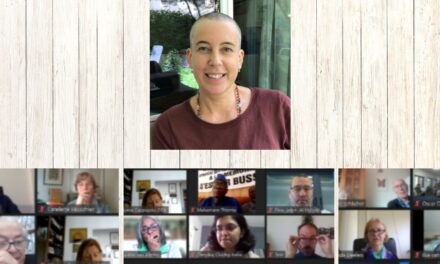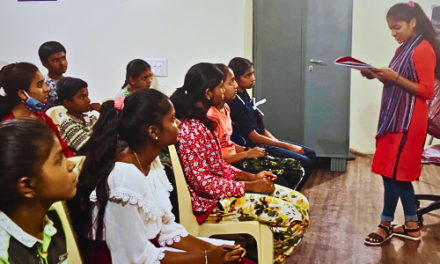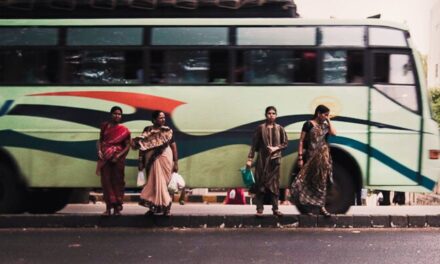A Glance Into The Lives Of Workers With Bite-Sized Stories From Factories, Homes & Communities. A Health Screening Camp Organised For Garment Workers In Bengaluru Reveals A High Prevalence Of Vitamin D Deficiency And Anemia. Meanwhile Cividep’s Partner NGOs Organised Summer Camps For Children Of Garment Workers. Also Read Field Notes From A Cividep – India Labourline Team’s Interactions With Low-Wage Workers Employed In The Industrial Estates of Chennai.
Worker-Centric Research
Silent Threats : A recent health camp by Cividep India, in collaboration with Munnade, reveals a troubling reality for women garment workers in Bangalore. The camp, conducted under the Multi Actor Partnership (MAP) project on Gender and Health, examined the health of 110 workers, from their blood test reports. The results show that 90% of them have insufficient Vitamin D levels, while 25% have low Hemoglobin (Hb) levels indicating anemia.
Workers enduring long hours indoors with limited sunlight exposure are particularly vulnerable to Vitamin D deficiency, which can result in weakened bones, increased susceptibility to infections, and chronic pain. Whereas anemia causes fatigue, weakness, and shortness of breath – symptoms commonly reported by garment workers, as documented in Cividep’s latest health study. These conditions significantly hinders their ability to perform effectively at work. Cividep urges factories to take corrective action by:
- Educating workers on the importance of a balanced diet rich in iron-rich foods, Vitamin D, and sunlight exposure.
- Offering nutritious meals or snacks at work to address dietary deficiencies.
- Supporting regular health screenings and supplementation programs to ensure timely diagnosis and intervention.
By prioritising worker health through proper nutrition and preventative measures, factories can ensure that the earning life of a worker is of a better quality and of a longer duration. This also would mean better financial security for their families. Most importantly, this is needed so that workers are viewed as more than just replaceable parts in a system.
Worker Solidarity
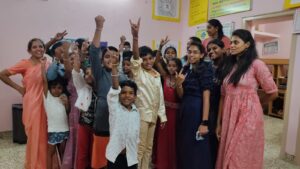 Avenues For Young Minds To Thrive: For many garment workers, low wages make affording after-school activities or summer camps for their children a distant dream. This often leaves them neglected, struggling in school, and susceptible to bad habits.
Avenues For Young Minds To Thrive: For many garment workers, low wages make affording after-school activities or summer camps for their children a distant dream. This often leaves them neglected, struggling in school, and susceptible to bad habits.
Cividep’s Amplifying Workers’ Voice project aims to tackle such issues head-on, in collaboration with local civil society organisations (Sadhana, Samruddhi, Munnade, and Garment Labour Union). By strengthening worker solidarity and collective bargaining power, the project supports workers in their fight for decent working conditions, equal pay, and access to healthcare. But it goes beyond wages and working conditions. Recognizing the impact of such work on workers’ families, the project team offers crucial support systems. Workers can access counseling, and most importantly for their children, access educational activities such as summer camps – a safe space for learning, development, and fun (in pic: summer camp organised by Sadhana Trust).
As one garment worker said, “It takes a weight off our shoulders knowing our children are engaged in meaningful activities that support their learning, and not engaging in bad habits.” Through this holistic approach, the team endeavours to empower garment workers not just in the workplace, but also in building a better future for their families.
Worker Support
 Formal Facade, Informal Reality: Many industrial areas around Chennai, like Sriperumbudur Special Economic Zone (SEZ), were once beacons of hope for Tamil Nadu youth seeking formal employment with benefits. However, a disturbing trend is emerging, as observed by a Cividep team running the India Labourline centre in Chennai, a helpline service that offers mediation and legal aid for low-wage workers
Formal Facade, Informal Reality: Many industrial areas around Chennai, like Sriperumbudur Special Economic Zone (SEZ), were once beacons of hope for Tamil Nadu youth seeking formal employment with benefits. However, a disturbing trend is emerging, as observed by a Cividep team running the India Labourline centre in Chennai, a helpline service that offers mediation and legal aid for low-wage workers
Factories are increasingly replacing local workers with inter-state migrants to avoid providing them with legally mandated benefits like social security, unionization rights, and proper wages. Inter-state migrant workers, who most often hail from Northern and Eastern Indian states such as Bihar, Orrisa, Jharkand, West Bengal and so on. They are placed at a disadvantage due to their unfamiliarity with the local language and culture in a city like Chennai. Without the networks and social capital needed to be able to strongly demand for their rights, they are more vulnerable to exploitation at their workplaces. The team’s outreach activities with workers in industrial estates such as Thirumudivakkam SIDCO, Thirumazhisai SIDCO, Irungattukottai SIPCOT, Guindy, Oragadam and so on reveals the harsh reality for these migrants:
- Lack of Basic Entitlements: Most lack Employee State Insurance (ESI) despite working in formal sectors. Some have minimal Provident Fund (PF) contributions but with limited access to it.
- Dysfunctional Unions: Established industries lack functional trade unions, leaving workers with no voice or representation.
- Exploitative Working Conditions: Long hours exceeding 12 per day, unpaid weekly offs, and delayed wage payments (sometimes quarterly) are commonplace.
- Unmonitored Work: Issues like heavy workloads, harassment, and injuries go unaddressed due to the absence of labor welfare committees.
This “informalisation” within the formal sector is a growing concern. Factories are exploiting loopholes to deny migrant workers their rightful benefits.
(Updates: Kaveri M.T, Pramod Kumar, Preethi Gowda, Kaliyaperumal Narayanan, Vijay Anand, Anitha V.)

